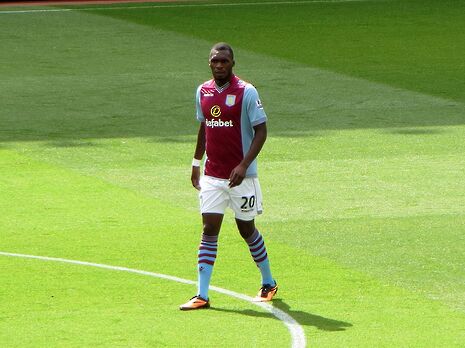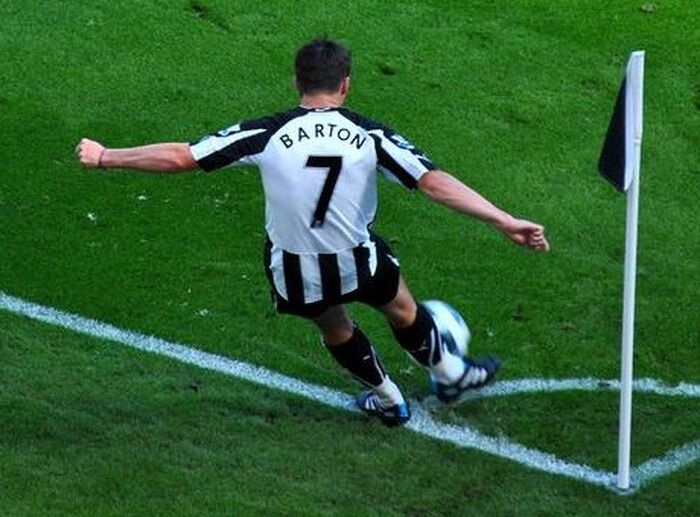Labour needs to raise the stakes in its battle against gambling sponsorship in football
Devarshi Lodhia argues that Labour’s proposed ban on football shirts being sponsored by betting companies doesn’t go far enough

The Labour Party’s plan to ban football shirts from carrying the logos of gambling companies is a positive step but it doesn’t go far enough in addressing the pervasiveness of the gambling industry in the game.
Tune in to any football coverage on commercial TV and chances are at half time, you’ll be greeted by Ray Winston telling you to “bet in-play nawh” with Bet365, while advertising boards at stadiums around the country display the logos of the likes of Paddy Power and Bet Victor. For all the outreach football clubs do in their local communities, one of the easiest ways they can help to protect vulnerable fans is to take gambling out of their grounds all together.
Betting companies and football are now seemingly more closely connected than ever as research from Goldsmiths, University of London found that even on Match of the Day gambling branding of some sort appeared on screen for between 71 per cent and 89 per cent of the show due to the fact that betting firms sponsors nine Premier League clubs including Newcastle, West Ham and Everton. With shirt sponsorship deals with gambling companies, worth a combined £47.3m this season alone, while Stoke’s stadium has carried the name of Bet365 since 2016.
This isn’t limited to the top flight though, with fourteen of the twenty-four teams in the Championship sponsored by betting companies and a further two in League One. Perhaps more worryingly, the entire English Football League is sponsored by SkyBet in a deal that is set to run up to 2019 making it clear that this is an epidemic that runs right to the core of professional football in the country.

FA rules already prohibit youth teams from wearing clothing that displays products considered “detrimental to the welfare, health or general interests of young persons” – including gambling, but until only a few months ago Ladbrokes was one of the FA’s main sponsors, in a deal worth £4 million per year. While they have ended their deal, there are still questions as to why an organisation that enforced a blanket ban on players betting on football matches worldwide were seen to promote gambling. If the FA wants to show it’s serious about protecting the welfare and interests of young people, they can start with gambling sponsorship in an attempt to help curb the epidemic of youth gambling addiction.
While there was widespread criticism of Newcastle United’s shirt sponsors, Wonga due to the exploitative nature of payday loan companies and their targeting a predominantly working class fan base, with Chi Onwura, MP for Newcastle Central even boycotting the club for the duration of their deal, there is nowhere near the same levels of outrage surrounding gambling companies.
Like payday loan companies, they too impact the most vulnerable, with unemployed men most at risk of developing an addiction. This is clearly illustrated in the massive increase in the overall number of problem gamblers, with more than 430,000 suffering from a serious habit, while up to two million are at risk of addiction.
It’s not just football fans that are affected by the normalisation and omnipresence of gambling companies within the game but the players themselves. Michael Chopra and Matthew Etherington have both spoken out about their struggles with gambling addiction, losing £2m and £1.5m respectively, while more recently, Joey Barton was given an 18-month ban for placing over 15,000 bets since 2004 across a range of sports and more than 1200 on football.
TV channels must also take a stand to limit the number of gambling adverts, especially during sports broadcasts. Philip Bowcock, CEO of the UK’s second biggest bookmaker, William Hill, surprisingly agrees, claiming his company “try and be responsible about what we promote”. Perhaps the UK can take a lead from Australia, where steps have been taken to prohibit ads from gambling companies five minutes before play starts until five minutes after play ends or 8.30pm, whichever comes sooner.
As Labour’s Deputy Leader, Tom Watson notes, if a law could be passed in 2005 to stop tobacco companies sponsoring sport, there is no reason the government shouldn’t do the same now to legislate against widespread gambling sponsorship and advertisements. While the government may or may not intervene, if football clubs seriously care about the welfare of their fans, they have a social responsibility to ensure they are at the forefront of removing gambling from the game
 News / Uni Scout and Guide Club affirms trans inclusion 12 December 2025
News / Uni Scout and Guide Club affirms trans inclusion 12 December 2025 News / Cambridge study finds students learn better with notes than AI13 December 2025
News / Cambridge study finds students learn better with notes than AI13 December 2025 News / Cambridge Vet School gets lifeline year to stay accredited28 November 2025
News / Cambridge Vet School gets lifeline year to stay accredited28 November 2025 Science / Did your ex trip on King’s Parade? The science behind the ‘ick’12 December 2025
Science / Did your ex trip on King’s Parade? The science behind the ‘ick’12 December 2025 News / Pembroke to convert listed office building into accom9 December 2025
News / Pembroke to convert listed office building into accom9 December 2025









